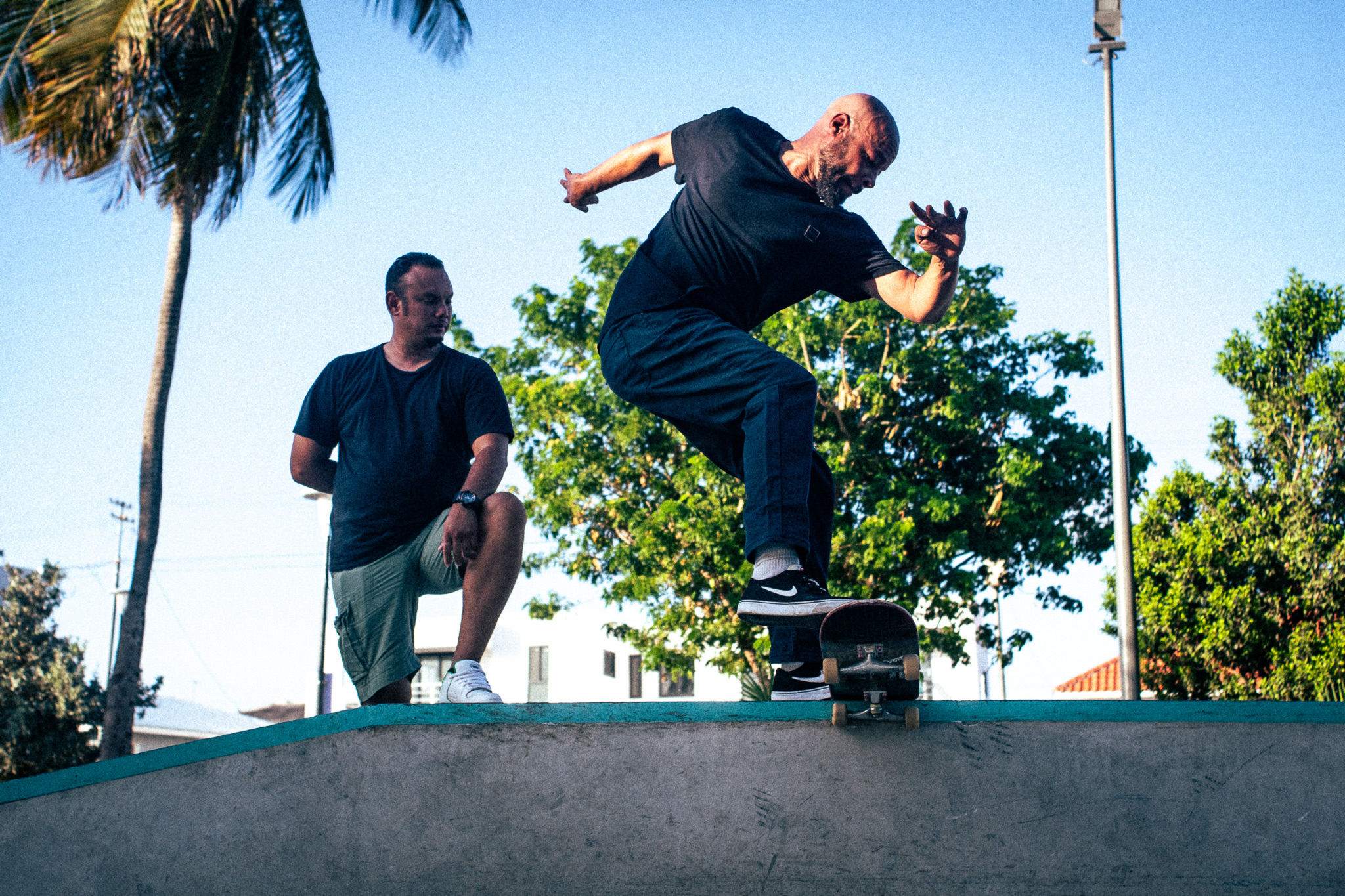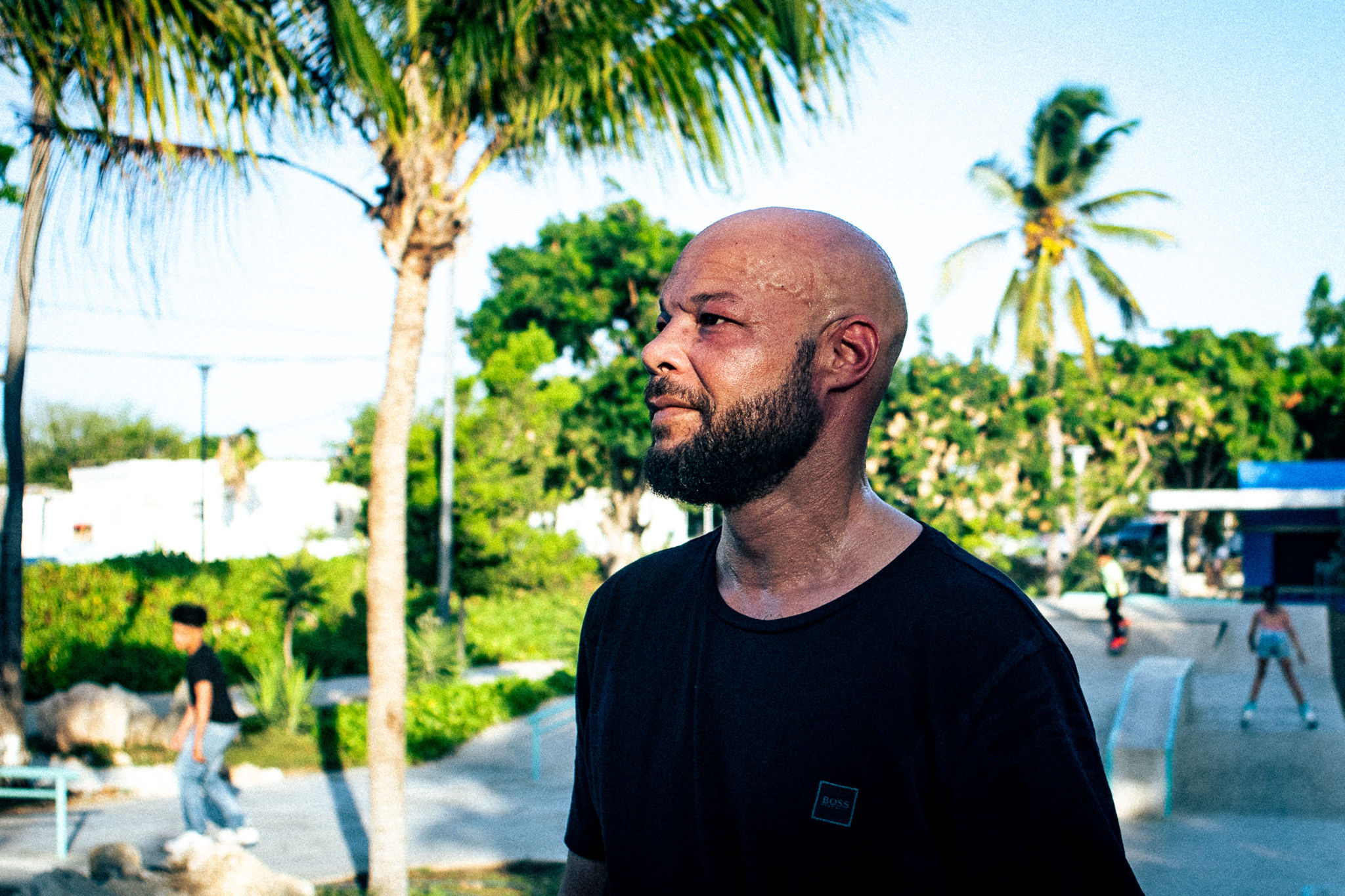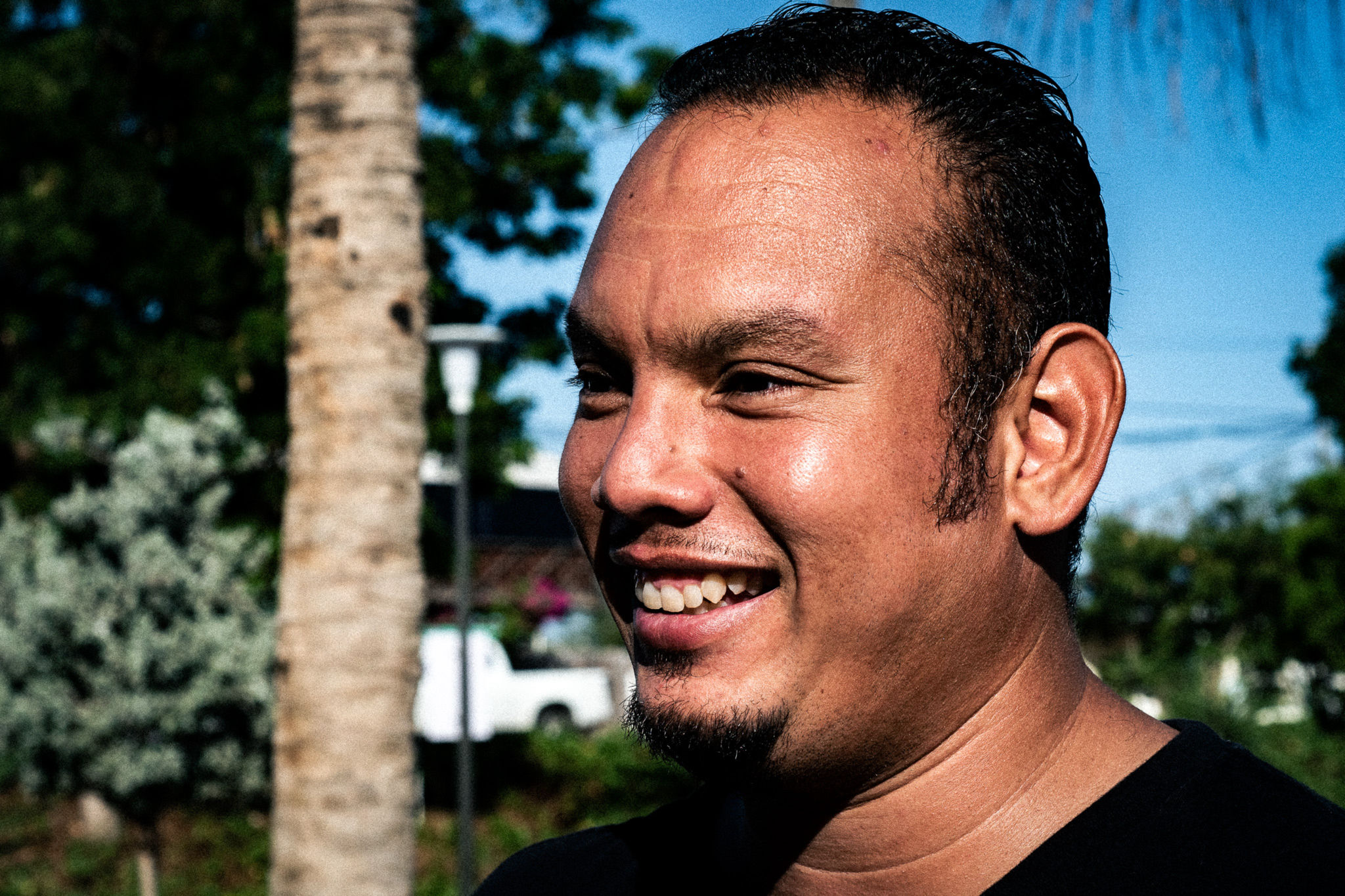In their younger years they could only dream of something like this. A permanent, concrete skate park right by the seaside. At Marie Pampoen no less. When the two adult gentlemen tell their story in the hot afternoon sun, the park in the new boulevard is still quite empty. Kids gradually trickle in. Parents encourage them to roll off the ramps. How different was it when Reuben and Charles started skateboarding about 30 years ago?
“I first skated on a plastic banana board that my uncle gave me,” says Reuben, “later i got a wooden board. Many people here had never seen a skateboard before, let alone knew that we could do tricks with it. Skateboarding was already huge worldwide, but there was hardly any skateboarding scene here. Maybe you knew someone at another school who also skated. We sometimes meet up in the weekend. It became a group, but of no more than seven people. We’d meet at Mahaai or near Zuikertuintje, and then rolled from spot to spot. It was very dangerous along the side of the highway.”
← swipe →
Charles adds: “For me it started when Reuben was already part of the OGs here, with rollerblades. I got them when I was seven, but I saw that my neighbor had a skateboard. That appealed to me more, but it was too expensive. Especially if you just got rollerblades of course. When I was 12 and had just started at a new school, I also saw two Dutch boys with boards. I knew skateboarding was the thing for me, when one of them put down his board, pushed a few times and threw out a kickflip.”
“I knew I had to get a skateboard,” Charles continues, “but you couldn’t find them anywhere on the island. Only the toy boards, but those don’t have the same quality. Eventually I was able to buy a board from one of those Dutch boys. From then on, all I wanted to do was skate. The older boys, including Reuben here, often skated on a makeshift park: Strada. They had built some wooden ramps themselves. But my mom refused to drive me there because she thought skating was too dangerous. But I was hooked so went secretly.”
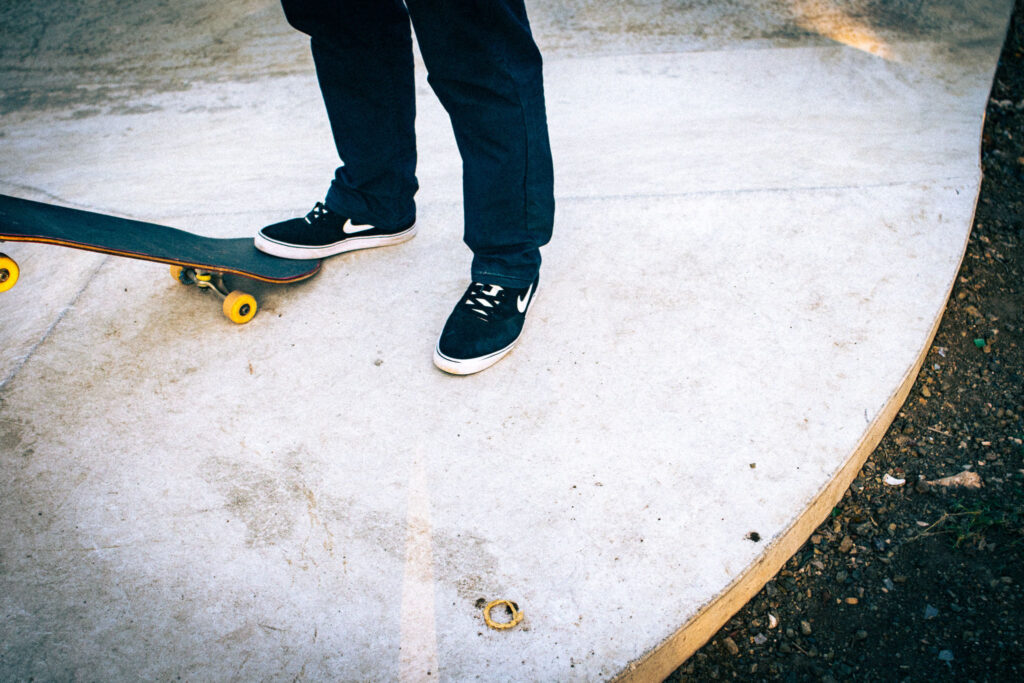
“We sometimes organized competitions,” says Reuben, “but I didn’t really take skateboarding very seriously. One day I saw my first skateboarding video and from that moment on it became clear to me that this was not a toy or a form of transportation. It was more than just a hobby. It was a real sport. When I realized that, I started learning as many tricks as possible. And when I moved to the Netherlands, I even participated in tournaments in Belgium and Germany.”
But skateboarding was initially viewed with suspicion on Curaçao, according to Reuben. “People saw it as something life-threatening. Certainly not as a sport. Sometimes we placed a small launch ramp in someone’s street and then neighbors would call the police. We were sent away from all kinds of spots and even got arrested. In the eyes of others, we were doing something weird, that they didn’t understand.”
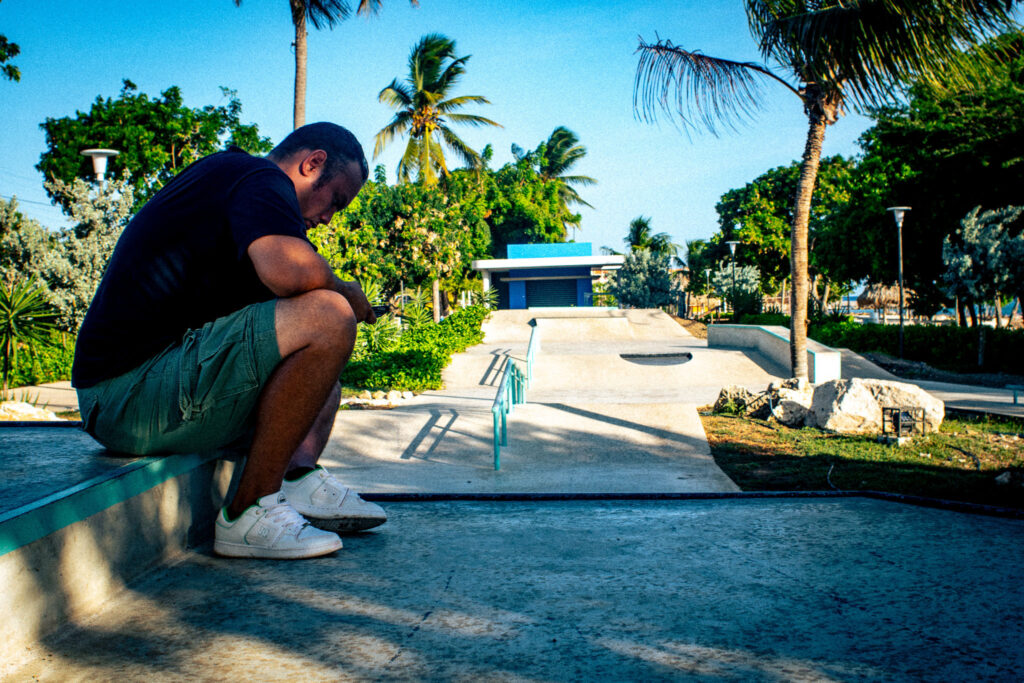
“I was called a devil worshiper or a masochist,” Charles adds. “After all, who in their right mind would think of doing something ‘so dangerous’, where you could seriously hurt yourself? That person must be a masochist or something. Right? I have also heard people say that this is something for white people. Or something for children. ‘You’re not a child, what are you doing on a board like that?’ The general attitude about skateboarding remained negative for a long time, until people started seeing it more often and it slowly but surely became cool. For example, when people skated in Pharrel’s music video became.”
Charles: “Skateboarding is so rich and diverse. There are endless tricks. Learning one opens the doors to twenty new tricks.” Reuben continues: “The great thing is also that skateboarding connects people. We didn’t look at someone’s ethnicity or background, or how much money their parents made. We all lived the ‘skater lifestyle’. It was about your personality and what you did on the board. It put you in contact with all kinds of interesting people, with whom you shared your passion for skating.”
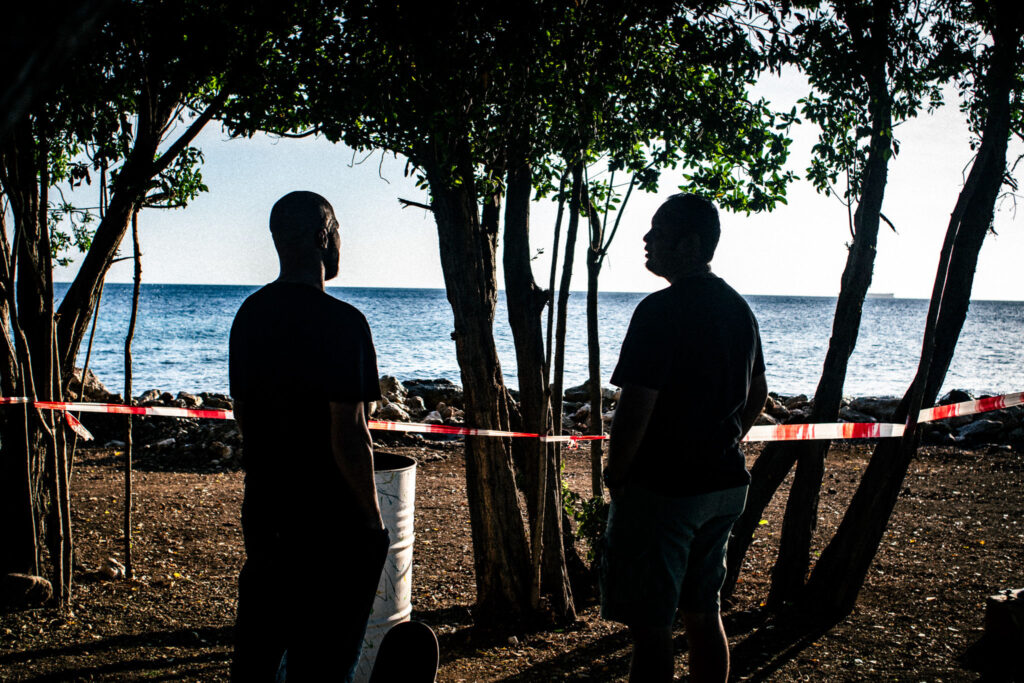
“I did stop skating several times as an adult. I had less time for it as I got older. I was also in a band and had to tour a lot.” Charles: “I also stopped for six years once, because of work etc. It also became too expensive. The better you skate, the more boards you wear out. At a certain point I couldn’t afford it anymore. But all those reasons felt like excuses. So I picked it up again three years ago. And since Reuben got back on the island, I convinced him to start skating again too.”
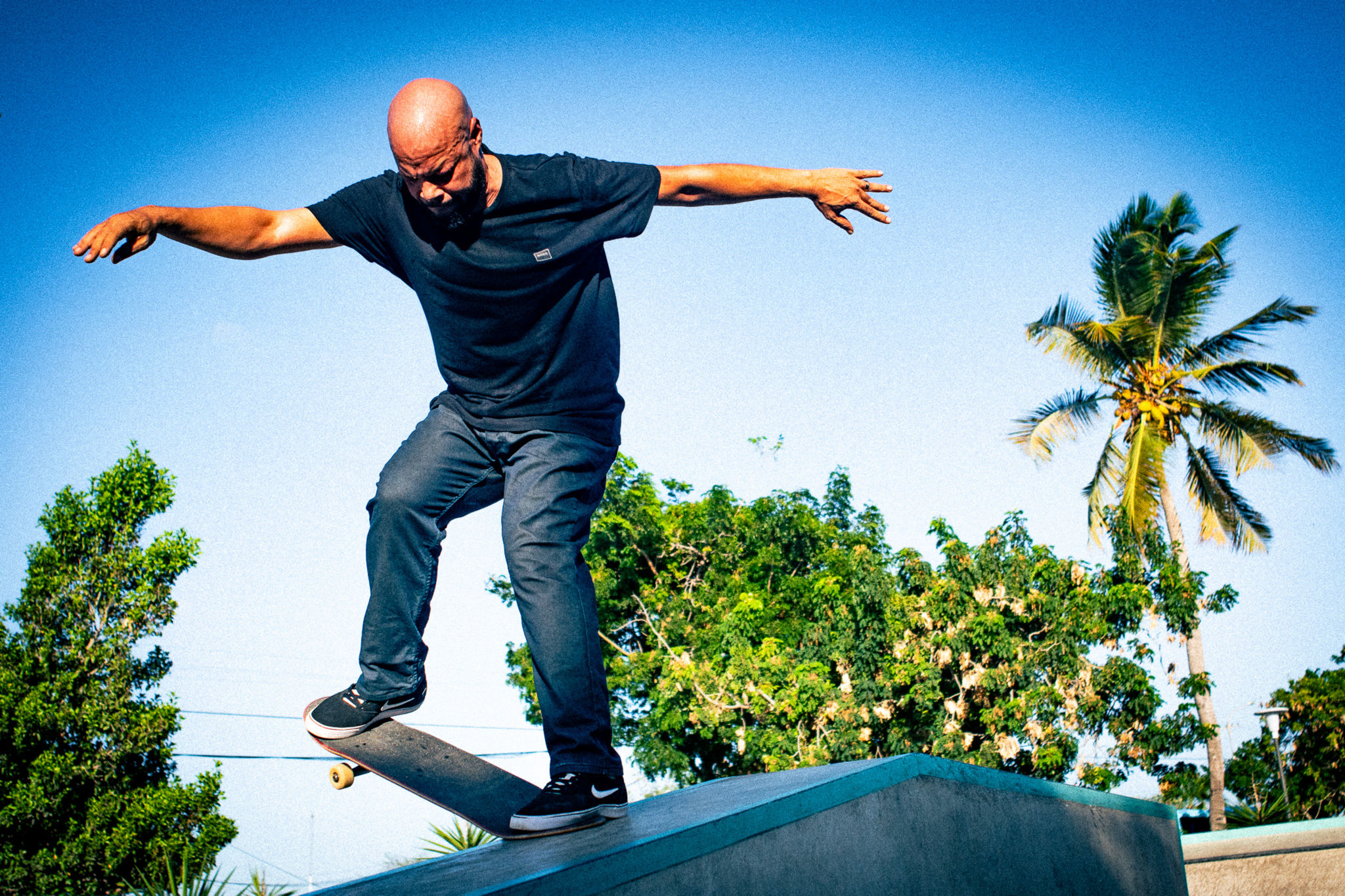
Reuben asks his girlfriend to film him when he goes for a big trick. Charles is currently recovering from a minor injury and watching on. After a number of attempts, Reuben manages to land the trick. A stern look is replaced by a joyous smile not that different from those of the children skateboarding around him at the skate park, of which he has one of the driving forces to get it built.
“Do you know how many ballparks and football fields there are here,” asks Charles, “of which at least ten are abandoned. It says something about a sport when there are so many places where you can practice it. So it was about time we got something like this for skateboarders. After Strada, we had to move the obstacles to location to location. Never having a fixed place to skateboard.”
Reuben explains: “My hope is that more Curaçaoan skaters can one day perform at the highest level, just like in football or baseball. This little park is a step in the right direction. The talent is there, I’m sure. It’s about a kind of recognition. We would love to show that people from this island can shine at an international level in this sport, and show that skateboarding can be something that can make the entire country proud.”
Islands is a series of portraits of people who have a unique hobby or lifestyle on the Caribbean island of Curaçao. They are ‘islands unto themselves’, who can be seen as ‘strange’ locally, but often turn out to be a source of culture and inspiration for the island. Words and photography by Lyangelo Vasquez
